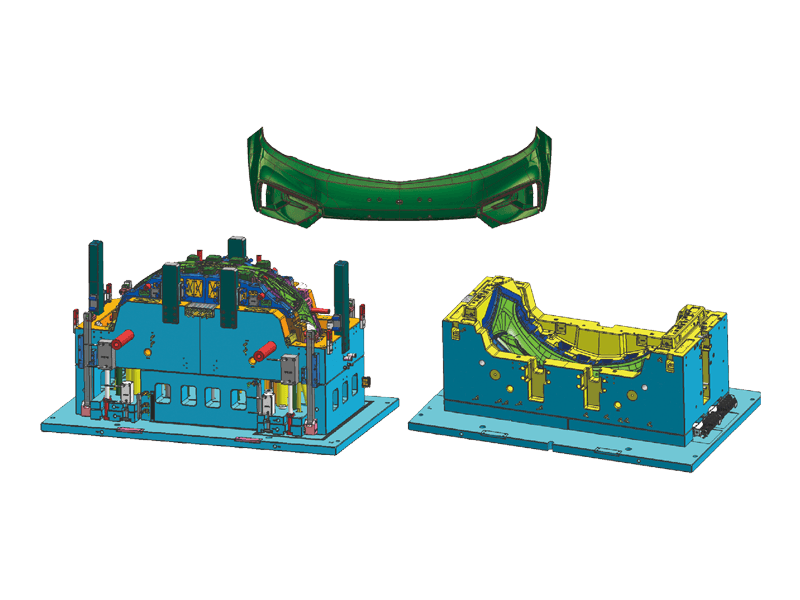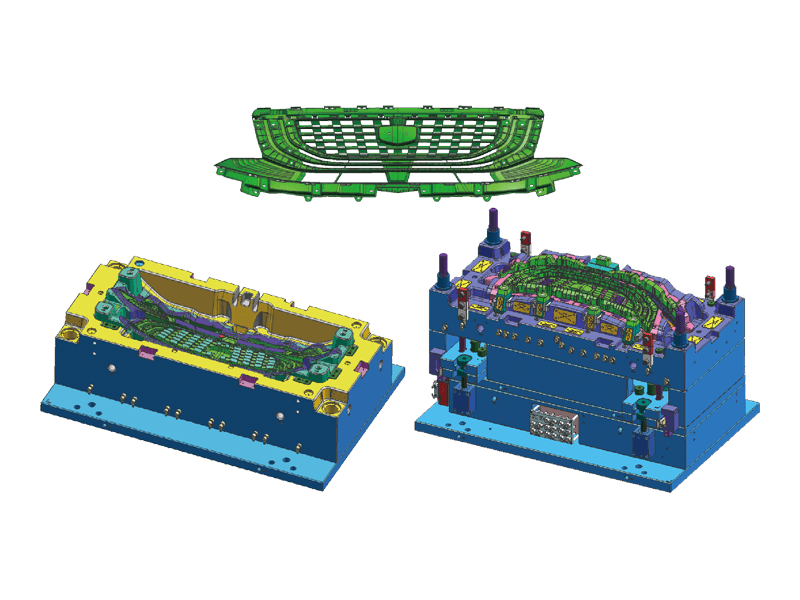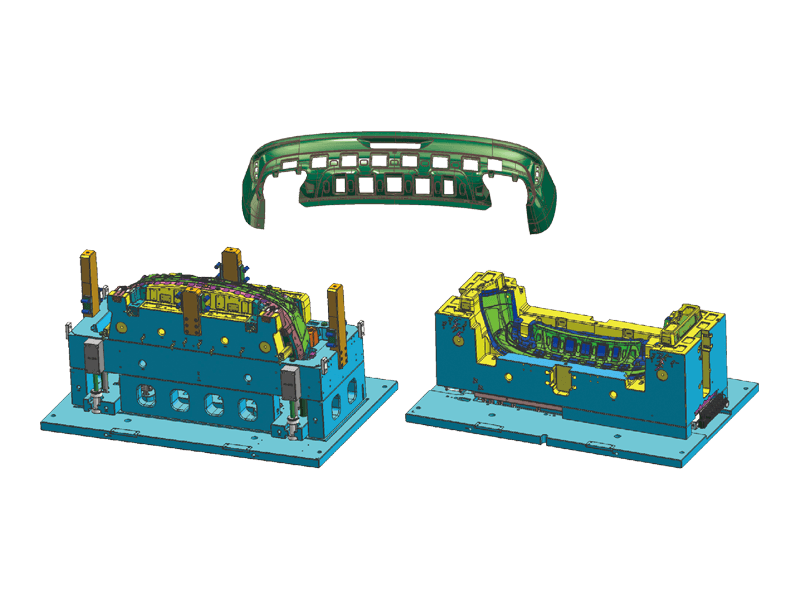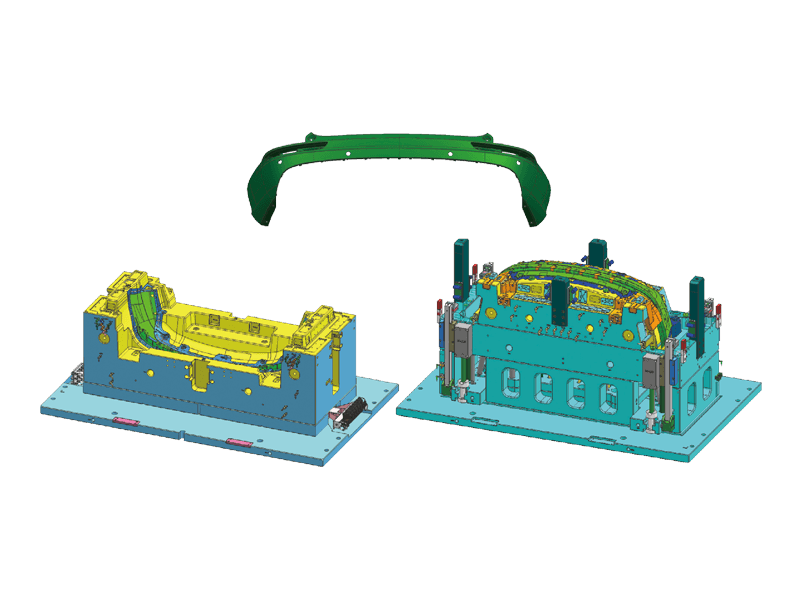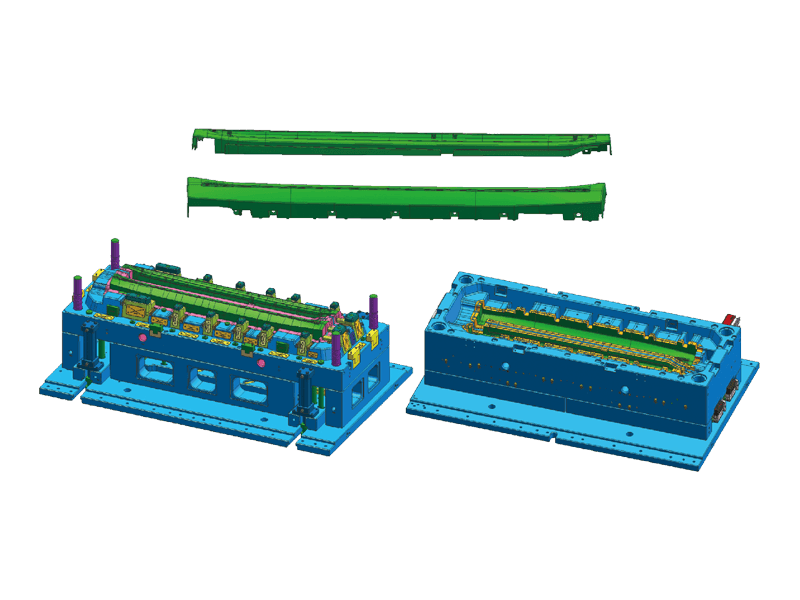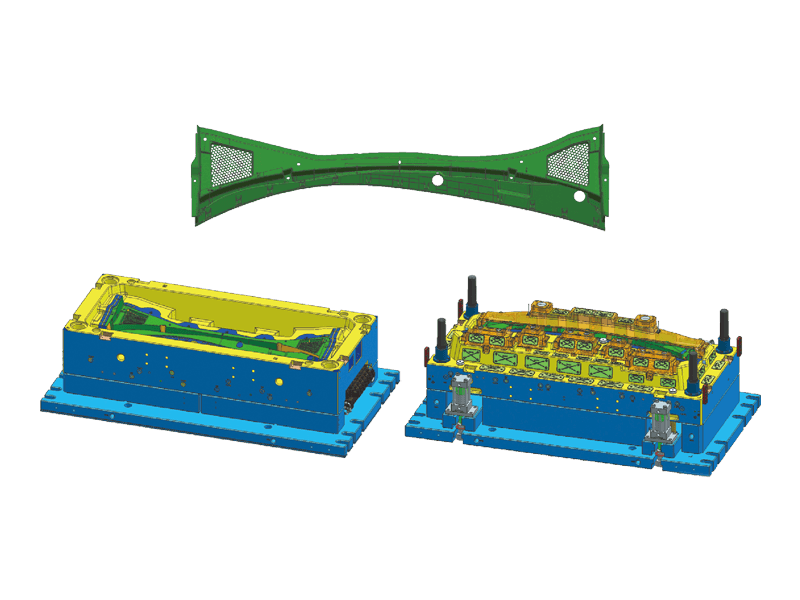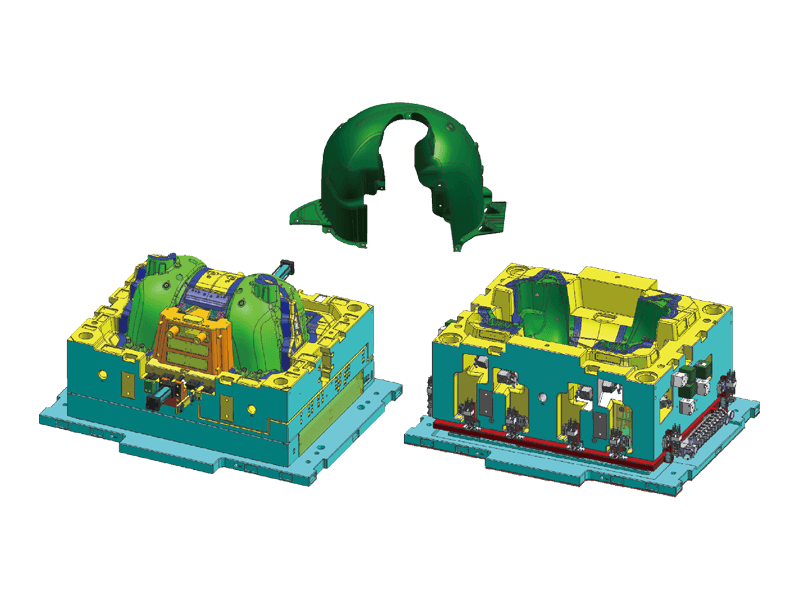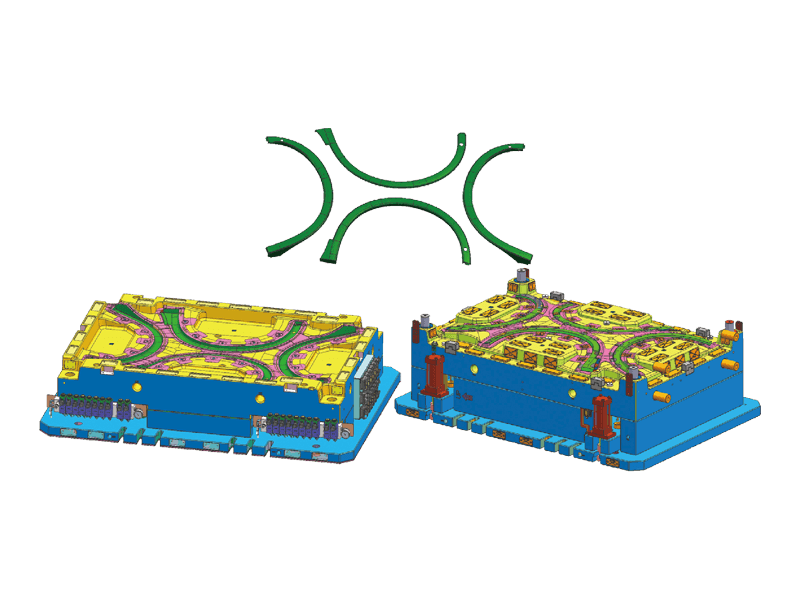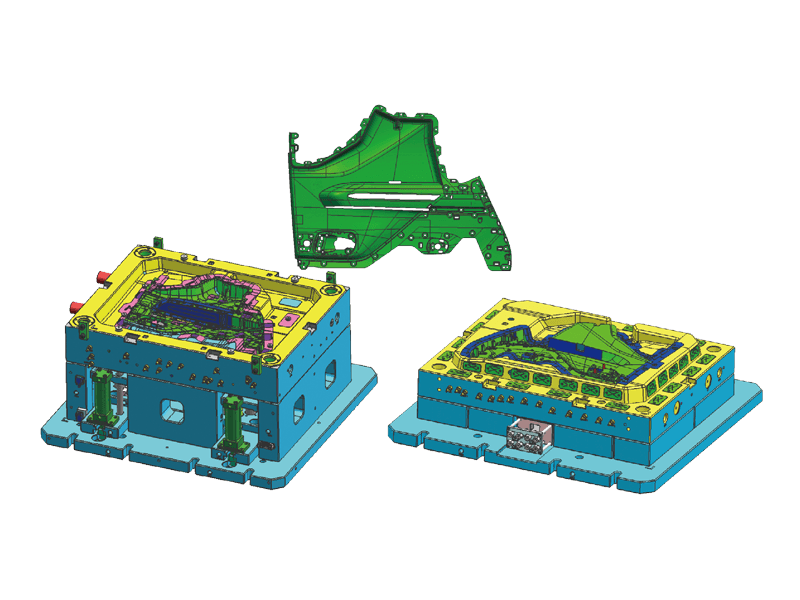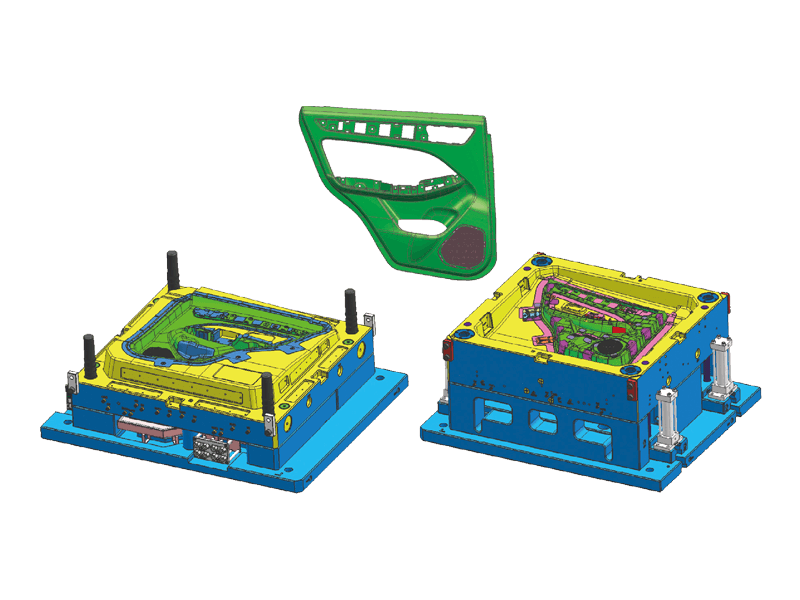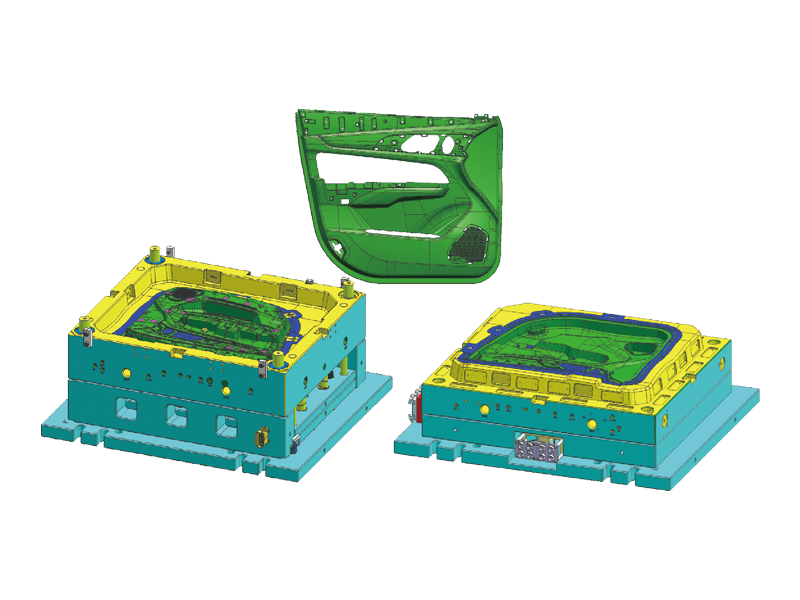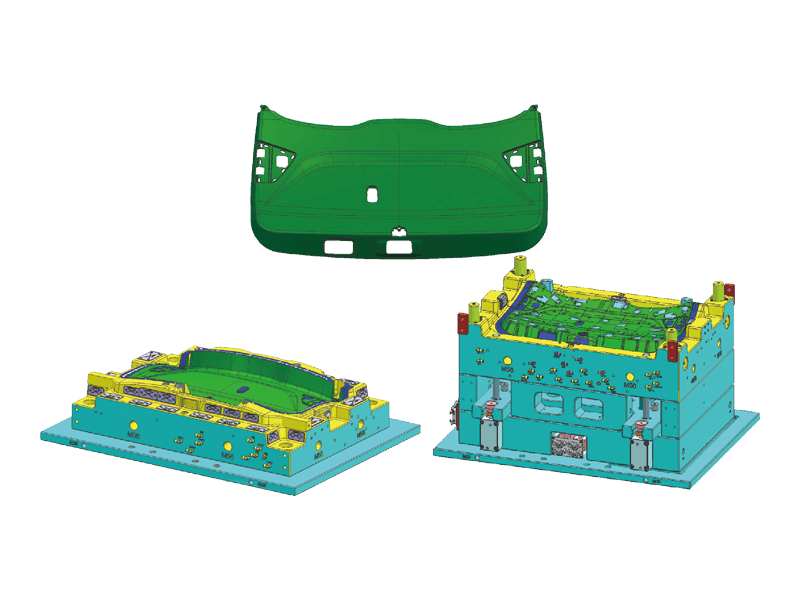The automotive industry has been witnessing a surge in innovation, with a significant focus on the development of advanced manufacturing techniques. One such area that has seen remarkable progress is the design and production of Plastic Injection Instrument Panel Molds. These molds are critical components in the creation of instrument panels, which are the central control units in vehicles. In this article, we will explore the latest advancements in Plastic Injection Instrument Panel Mold technology and how they are set to revolutionize the industry.
Plastic Injection Instrument Panel Molds are essential in the automotive manufacturing process. They are used to create the instrument panels that house the vehicle's gauges, controls, and displays. The precision and quality of these molds directly impact the aesthetics, functionality, and durability of the final product. With the increasing demand for high-quality, cost-effective, and lightweight components, the development of advanced Plastic Injection Instrument Panel Molds has become a top priority for manufacturers.
The latest Plastic Injection Instrument Panel Molds are being developed using innovative materials such as high-strength polymers and advanced composites. These materials offer improved strength-to-weight ratios, allowing for the creation of lighter and more durable instrument panels. Additionally, new techniques in mold design, such as micro-injection molding, enable the production of intricate details and complex geometries that were previously unattainable.
As the automotive industry moves towards increased connectivity and automation, Plastic Injection Instrument Panel Molds are being designed to integrate smart technologies. This includes the incorporation of sensors, LED lighting, and touch-sensitive surfaces. These advancements not only enhance the user experience but also contribute to the overall intelligence of the vehicle.
The development of Plastic Injection Instrument Panel Molds is also focusing on sustainability. Manufacturers are adopting eco-friendly materials and processes to reduce the environmental impact of production. This includes the use of recycled plastics and the implementation of energy-efficient manufacturing practices.
The automotive industry is increasingly catering to customer preferences for personalized vehicles. Plastic Injection Instrument Panel Molds are being designed to allow for greater customization options, enabling manufacturers to produce instrument panels that cater to individual tastes and requirements.
One of the key benefits of the latest Plastic Injection Instrument Panel Molds is their ability to reduce production costs and increase manufacturing speed. Advanced mold designs and materials allow for faster cycle times and reduced material waste, to cost savings that can be passed on to consumers.
The precision of Plastic Injection Instrument Panel Molds has been significantly improved, to higher quality instrument panels. Advanced mold design software and 3D printing technologies enable manufacturers to create molds with exacting tolerances, ensuring that each panel meets the standards of quality.
Major automotive manufacturers are already adopting these advanced Plastic Injection Instrument Panel Molds in their production lines. As the technology continues to evolve, it is expected that the adoption rate will increase, to a more widespread use of these molds across the industry.
The advancements in Plastic Injection Instrument Panel Mold technology are not just incremental improvements; they represent a significant leap forward in the automotive industry. As these molds become more sophisticated, they are set to transform the way instrument panels are designed and manufactured, offering benefits such as increased customization, improved sustainability, and enhanced functionality. The future of Plastic Injection Instrument Panel Molds looks bright, promising a new era of innovation and excellence in automotive manufacturing.


 English
English 中文简体
中文简体